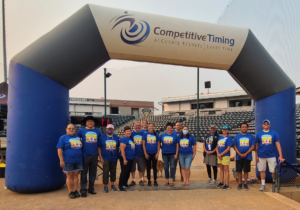Policy Blast: Tribal Nations Summit Highlights Funding Needs for Indian Health including Urban Indian Health
Administration leaders discussed new initiatives to address the needs of Indian Country, a memorandum of understanding to support Native languages, advance appropriations for IHS, and additional funding for urban Indian health
Last week, the White House convened for the 2021 Tribal Nations Summit for the first time since the Obama Administration. During the summit, remarks encompassed an array of topics all linking back to the health, wellness, and progression of Indian Country. This year’s summit brought together officials and leaders from the Federal government and federally recognized Tribes, to discuss ways to invest and continue to strengthen the Nation-to-Nation relationship.
- During the live broadcast President Biden announced five new initiatives:
- Development of 17 departments and agencies to protect Tribal treaty rights in the work of the Federal government;
- Increase Tribal participation in management and stewardship of Federal lands;
- Institute the Biden Administration as the first to work to achieve comprehensive Tribal ecological knowledge into the Federal governments scientific approach in the fight of climate change;
- Take action to protect the greater Chaco landscape in northwestern New Mexico further protecting the area from new oil and gas leasing;
- Lastly, signed executive order “Improving Public Safety and Criminal Justice for Native Americans and Addressing the Crisis of Missing or Murdered Indigenous People”. This order has a heavy emphasis on policy and directs the departments of Justice, Interior, Homeland Security, and Health and Human Services to create and implement strategies that improve safety; additionally, addressing the ongoing crisis of missing or murdered Indigenous people. Strategies identified in the order call for support on enforcement strategies with prevention and response to violence; improved data collection, analysis, and information sharing; early intervention and victim survivor services; and increased consultation and engagement with Indigenous communities.
During the summit, acknowledgement was paid to the profound impact of COVID-19 to Indian country and the devastating consequences. Highlighting the lack of infrastructure, gaps in efficient health insurance access, high rates of unemployment, lack of foundational preschool education for children, and several other critical measures. Janet Yellen, U.S. Secretary of the Treasury, addressed that the goal is not to return Indian country to its pre-covid economic situation, that was already not efficient, but to truly “build back better.” Several mentions were made to the direct promotion of Urban Indian Organization (UIO) capacity and the health status of their patients. Secretary Xavier Becerra, U.S. Department of Health and Human Services, noted that “as of this week, IHS has administered over 1.78 million doses of the COVID-19 vaccine in Indian Country, through Tribal and urban Indian programs”. American Indians and Alaska Natives have an over three times higher infection rate than non-Hispanic whites, are four times more likely to be hospitalized, and have higher rates of mortality at younger ages, yet modeled with resilience in testing and prevention planning, Indian Country now leads the nation for having the highest vaccination rate!
First Lady Jill Biden announced a new memorandum of agreement on Native language, bringing governments together to promote and support the instruction and preservation of Native American languages. This investment will bring millions of dollars to enable the revitalization of many languages that are in danger of being forgotten due to the loss of elders during this pandemic. Such loss urges the need for protection of language and tradition more than ever.
Susan Rice, Director of the Domestic Policy Council, covered President Biden’s request for $29 billion for Indian Programs in the next year budget, indicating a 14% increase over last year’s request. Including for the first time, advance appropriations for Indian Health Service (IHS).
As the summit came to a close, IHS announced $9.34 million in funding, enhancing opportunities to support Tribal self-governance and urban Indian health. The Urban Indian Health Programs 4-in-1 Grant Program is for $8.5 million and aims to enhance capacity when developing programs that achieve the highest possible health status for urban Indians. Funding will be used to support four health program objectives:
- Health promotion and disease prevention services
- Immunization services
- Alcohol and substance abuse related services
- Behavioral health services
There are a total of 33 awards expected to be afforded, lasting the span of 5-years. Applications are due by February 8, 2022. Individual award amounts for the first year will be between $160,000 and $650,000. New applicants can apply for funding up to $200,000. This funding is only open to UIOs that are currently administering a contract or receiving a grant.
Background
The progress report, published in partnership with the Tribal Nations Summit, was released in advance of last week’s Summit and included the need to meet the obligations to urban Indians. In the report, it addressed that over 70 percent of AI/ANs live off reservation in an urban area. The report reinforces the Biden Administration’s commitment to elevating the voice of urban Indians, including UIOs, in Tribal listening sessions with topics pertinent to health, education, funding, housing, voting, and more, as well as addresses Urban Indian Health Organizations inclusion in 100 percent Federal Medical Assistance Percentages (FMAP).



